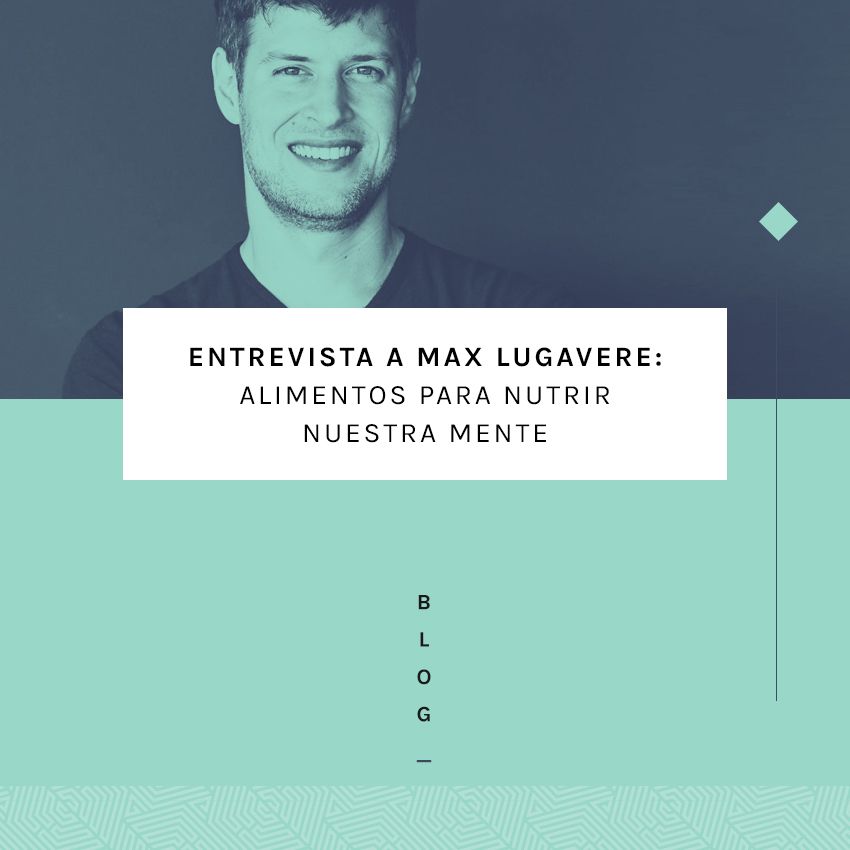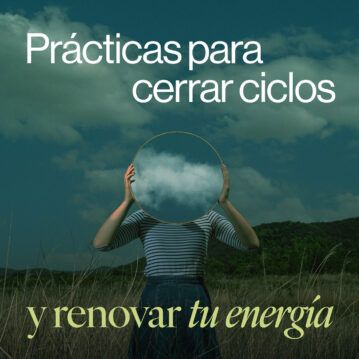
Entrevista a Max Lugavere: alimentos para nutrir nuestra mente
¿Te gustó este contenido? Haz clic en me gusta y consulta de nuevo, cuando quieras, en la sección de Mis Favoritos
Max Lugavere es un periodista de ciencia y salud, autor del libro “Genius foods”, donde comparte su investigación y experiencia personal sobre cómo los alimentos ayudan a mantener la salud de nuestro cerebro, mejorar nuestro humor y capacidad cognitiva. Acá les dejo una intro sobre mi experiencia leyendo su libro, y esta entrevista donde conversamos sobre qué despertó su curiosidad por este tema y sus recomendaciones.
Al final de la entrevista podrás disfrutar de su versión original en inglés.
Eres periodista. ¿Por qué decidiste convertirte en un periodista de salud? ¿Puedes compartirnos tu historia?
Hace unos siete años, mi mamá comenzó a tener síntomas neurológicos extraños que me hicieron buscar respuestas desesperadamente. Finalmente, fue diagnosticada con una condición neurodegenerativa que me rompió el corazón. Pero mi abuela, que era mucho mayor, había estado cognitivamente saludable todo el tiempo, lo cual me hizo pensar que quizás la dieta y estilo de vida de mi mamá a través de los años había contribuido a su decaimiento, y la dieta más tradicional de mi abuela la había protegido. Ya había trabajado previamente como periodista, lo cual me dio las herramientas para investigar a profundidad. Comencé a investigar la conexión entre la alimentación, el estilo de vida y la salud del cerebro y aprendí que esta es influenciada por casi cada otro sistema del cuerpo, sistemas como el cardiovascular que ya sabemos es impactado por la comida.
¿Podemos prevenir las enfermedades cerebrales?
No podemos decir que todas las enfermedades cerebrales son prevenibles, pero cuando vemos las más comunes y relacionadas a la edad, podemos decir que hay un número significativo de casos que son potencialmente prevenibles.
¿Cuán importante es la alimentación en esto?
La comida juega un rol importante en la salud de nuestros cerebros, de mantenerlos grandes y saludables al proveerles lo necesario para la neurogénesis, o la creación de nuevas células. También asegurar que nuestro sistema vascular está saludable, lo cual es necesario para brindar al cerebro nutrientes y combustible. Incluso el agua es increíblemente importante, una deshidratación ligera ya reduce el poder cognitivo.
Dinos cinco cosas que debemos incluir en nuestra dieta ya
Aguacates (palta), vegetales de hojas verdes oscuras, huevos pasteurizados, pescados grasos como el salmón o las sardinas y aceite de oliva extra virgen. Estos alimentos proveen a nuestro cerebro con los bloques de construcción para crear nuevas células saludables y, al mismo tiempo, le dan una capa de protección gracias a los antioxidantes solubles en las grasas que contienen.
Si lo que comemos afecta nuestro humor, ¿qué podemos comer para sentirnos felices?
La misma comida que va a proteger nuestro cerebro del envejecimiento nos va a ayudar a estar más felices y menos ansiosos. La inflamación que es activada como una respuesta inmune puede causar o exacerbar la depresión para algunas personas. Así que al consumir una dieta (y tener un estilo de vida) que respeta el sistema inmune de tu cuerpo y mantiene la inflamación a un mínimo, podemos estar combatiendo incluso los peores casos de depresión.
¿Puedes explicar que es el ayuno intermitente? Ahora es una moda
El ayuno intermitente es una forma de honrar los ritmos naturales de nuestro cuerpo. Implica comer en un período establecido cada día, y no comer nada fuera de esa ventana de tiempo, aunque tomar líquidos libres de calorías es aceptado. Estudios en animales sugieren que es tan importante cuándo comemos como qué comemos, y estudios en humanos han validado que como mínimo es una forma sencilla de controlar calorías. El protocolo es simple: no comas en las dos o tres horas posteriores a despertarte y no comas en las dos o tres horas previas a irte a la cama.
¿Tú lo recomiendas?
Con seguridad recomiendo probarlo.
¿Qué tal los suplementos?, ¿cuáles recomiendas?
Soy un fan del aceite de pescado de alta calidad. Los aceites de pescado se dañan fácilmente por la luz, el calor y el oxígeno, así que intento comprar el mejor que puedo pagar. También me gusta la astaxantina, que es un carotenoide marino, el mismo que le da al salmón su rico color rojo, también suplementos de proteína para mantener mi ingesta alta.
Ahora, sobre el estilo de vida. La comida es obviamente importante para mantenernos saludables y sentirnos felices, pero en lo que a prácticas de nuestra vida diaria se refiere, ¿qué recomiendas?
El ejercicio es poderoso, y generalmente recomiendo dos tipos: bajo y suave, fuerte y rápido. “Bajo y suave” sería caminar, salir en bicicleta, nadar, hacer yoga, tomar las escaleras cada vez que puedas, cosas así. “Fuerte y rápido” sería entrenamiento con pesas, clases de entrenamiento, HIIT, correr, y ese tipo de acción concentrada. El entrenamiento de resistencia en particular es importante. Queremos desarrollar músculos porque tener músculos fuertes en las piernas, el pecho y la espalda, está directamente relacionado a tener una mejor salud cerebral. Además, el entrenamiento de resistencia es muy efectivo para mejorar el humor.
¿Dirías que hay alimentos que ayudan a crear nuevos caminos neuronales y cambiar patrones?
Creo que la cúrcuma es un gran alimento para esto porque uno de sus componentes: el turmerone aromático, ha sido comprobado en estudios en animales como un estimulador de la producción de células madres en el cerebro. En términos de volver a cablear viejos patrones neuronales: mantener el cerebro joven con ejercicios, la “comida de genios”, y medicamentos antiguos como la cúrcuma, son las mejores opciones que hay.
ENGLISH VERSION
You’re a journalist. Why did you decide to be a health journalist? Can you share your story?
About 7 years ago, my mother began showing strange neurological symptoms that left me desperate for answers. Ultimately, she was diagnosed with a neurodegenerative condition which left me heartbroken. But because my grandmother, who was much older, had been cognitively healthy at the time, it got me thinking whether my mom’s diet and lifestyle through the years may have contributed to her decline and if my grandmother’s more traditional diet protected her. Previously I had worked as a journalist, which gave me the skills to investigate further. I began to research the connection between diet, lifestyle, and brain health and learned that the health of the brain is influenced by nearly every other system in the body—systems, like the cardiovascular system, that we already know food impacts.
Can we prevent brain diseases?
We can’t say that all brain diseases are preventable, but when looking at some of the most common age-related brain diseases we can say that a significant number of cases are potentially preventable.
How important is food in this?
Food plays a major role in the health of our brains, from keeping them big and healthy by supplying the raw materials for neurogenesis, or the creation of new brain cells, to ensuring that our vascular system stays healthy, which is important for supplying our brains with nutrients and fuel. Even water is incredibly important, with mild dehydration leading to reduced cognitive power.
Tell us 5 things we should include in our diet right away
Avocados, dark leafy greens, pastured eggs, fatty fish like wild salmon and sardines, and extra-virgin olive oil. These foods provide our brains with the building blocks to create healthy new brain cells while also giving them a layer of protection by way of the fat-soluble antioxidants they contain.
If good affects our mood, what can we eat to feel happy?
The same foods that are going to shield our brains against aging also will help us be happier and less anxious. Inflammation which is an activated immune response might cause or exacerbate depression for some, so by consuming a diet (and living a lifestyle) that respects our body’s immune systems and keeps inflammation to a minimum we might be able to fight even the worst cases of depression.
Can you explain what is intermittent fasting? Now that is a trend…
Intermittent fasting is a way of honoring our body’s natural rhythms. It implies eating for a set time period every day and not eating anything outside of that window (though drinking calorie-free fluids is ok). Studies in animals suggest that when we eat is as important as what we eat, and human studies have validated that at the very least, it is an easy way to control calories. My protocol for this is simple: Do not eat for 2-3 hours after waking up, and do not eat for 2-3 hours before bed.
Would you recommend it?
I would certainly recommend trying it!
What about supplements? Which ones you recommend
I’m a fan of fish oil, but it must be high quality! Fish oils are easily damaged by light, heat, and oxygen, so I like to buy the best fish oil I can afford. I also like astaxanthin which is a marine carotenoid that gives wild salmon its rich red color, and protein supplements to keep my protein intake up.
Now about lifestyle. Food is obviously important to stay healthy and feel happy. But regarding practices in our daily life, what would you recommend?
Exercise is powerful, and when I recommend exercise usually I recommend two types: low and slow, and hard and fast. Low and slow would be walking, biking, swimming, yoga, taking the stairs whenever possible, things like that. Hard and fast would be weight training, workout classes, HIIT, sprints, and those sorts of concentrated bursts. Resistance training in particular is important. We want to put on muscle as having stronger legs, chest, and back muscles are directly related to better brain health. Finally, resistance training is very effective at boosting your mood.
Would you say there are foods that help create new neuronal pathways and change patterns?
I’d say turmeric is a great food for this because a component of it, aromatic turmerone, has been shown in animal studies to boost stem cell proliferation in the brain. In terms of rewiring old pathways, keeping the brain youthful with exercise, the Genius Foods, and ancient medicinal foods like turmeric, is the best bet you have!






